I created a setup project using Microsoft Visual Studio Installer Projects (0.9.3, this is latest for Visual Studio 2019). After setup is executed it installs Nuget package assemblies that are different from the assemblies generated during build.
Why is it doing that and how can I make it to chose assemblies consistent with build assemblies?
My application is for 4.7.2 framework. Typical example is System.ValueTuple.dll (4.0.2)
Build retrieves assembly from: C:\Users\.nuget\packages\system.valuetuple\4.5.0\lib\net47\System.ValueTuple.dll
Install retrieves assembly from: C:\Program Files (x86)\Reference Assemblies\Microsoft\Framework.NETFramework\v4.7.2\Facades\System.ValueTuple.dll
While install based on 4.0.2 creates a concern but works, when I upgrade nuget package to version 4.6 (and assembly to 4.0.3) install switches to using assembly C:\Users\vgdev.nuget\packages\system.valuetuple\4.5.0\ref\net47\System.ValueTuple.dll
If you look closer, you will notice path above has \ref folder and it contains "reference" assembly. Reference assemblies are not meant to be installed and cause errors BadImageformatException.
The build after Nuget package upgrade continues to pull packages from the correct \lib folder and application works fine. So what I want to do is to make installer work consistently with build. Any advice?
